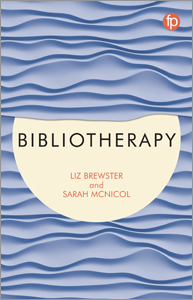
Primary tabs
You don't need to be an ALA Member to purchase from the ALA Store, but you'll be asked to create an online account/profile during the checkout to proceed. This Web Account is for both Members and non-Members.
If you are Tax-Exempt, please verify that your account is currently set up as exempt before placing your order, as our new fulfillment center will need current documentation. Learn how to verify here.
- Description
- Table of Contents
- About the authors
- Reviews
Bibliotherapy programs can now be found in libraries all over the world, from public libraries, through to health/hospital libraries and academic libraries. This book draws on the latest international practical and theoretical developments in bibliotherapy to explore how libraries can best support the health and wellbeing of their communities.
This book encompasses all aspects of "bibliotherapy" in its widest sense, starting with a critical historical overview of bibliotherapy, followed by an explanation of theories or approaches to bibliotherapy. The book explains how various bibliotherapy models work by drawing on practical examples to demonstrate how the theories behind bibliotherapy can be applied in practice.
Case studies include a range of settings (public library, academic library, outpatient, inpatient); populations (including young people, ESOL speakers, psychiatric patients, homeless people, people with dementia/carers); and countries (UK, North America, South America, Australia).
Part I: History and theory of bibliotherapy 1. Bibliotherapy: a critical history - Liz Brewster 2. Theories of bibliotherapy - Sarah McNicol 3. Bibliotherapy, illness narratives and narrative medicine - Liz Brewster 4. Bibliotherapy and graphic medicine - Sarah McNicol Part II: Bibliotherapy case studies 5. Read to Connect: Reading to combat loneliness and promote resilience - Natalia Tukhareli 6. Long term impacts of bibliotherapy groups: reading and writing together - Fiona Bailey 7. The benefits of shared reading groups for those at risk of homelessness - Susan McLaine and Elizabeth Mackenzie 8. Developing a reading group service for an older adult functional psychiatric in-patient ward - David Chamberlain 9. Bibliotherapy in Uruguay: a case study of the Mario Benedetti library for patients dealing with substance abuse - Cristina Deberti Martins (translated by Sarah McNicol) 10. Adapting the Books on Prescription model for people living with dementia and their carers - Rosie May Walworth 11. Engaging young people in bibliotherapy and reading for wellbeing - Rosie May Walworth 12. Bibliotherapy Read Aloud groups with native and non-native speakers - Kate Gielgud 13. Promoting student wellbeing through a student success collection - Elena Azadbakht and Tracy Englert
Liz Brewster
Liz Brewster is a lecturer at Lancaster Medical School, Lancaster University, UK. Her research focuses on experiences of mental health and wellbeing, and particularly on how creative activities such as reading may affect mental health. She has previously worked in academic and public libraries.
Sarah McNicol
Sarah McNicol is a research associate at the Education and Social Research Institute, Manchester Metropolitan University, UK. She has worked as an Information Studies researcher since 2000, and has particular interests in information literacy, lifelong learning, and school and children's libraries. She has published widely in the information studies field and has previously guest edited a number of journals, including Library Review and Library Trends.
”The challenge for librarians is to develop and pilot these programs. Luckily this text provides examples of partnering with outside organizations such as the Department of Health, local hospitals and outpatient facilities, and other nonprofits. The book highlights free resources libraries can use to get bibliotherapy programs off the ground. Libraries could use this book as a way to transform a love of reading into a therapy that can make a meaningful difference in a reader's life."
— CHOICE


